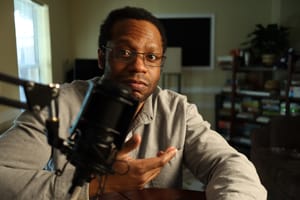During the holidays, I came across an article discussing new Chinese laws regulating video games, particularly those with in-app purchases (known as 'Gacha games').
China is drafting laws to limit the more toxic elements of the genre. (Like limiting money spent, decreasing limited edition items, removing daily logins, etc.)
China has a history of regulating video games, overseeing elements like artwork and storylines, and imposing restrictions on gaming time for minors.
In contrast, US lawmakers are grappling with the basics of content moderation for social media companies.
To be clear, I'm not advocating a specific approach. I just want to explore, what's going on here?
A piece in Business Insider this week by Lydia Kiesling frames this well.
Americans Idolize the Rugged Individualist
When it comes to child protections, the laws in America are rough compared to other first-world countries.
We are a country that champions child labor, defunds preschools, school lunches, and any other policies designed to help kids.
The mantra often comes down to "parents need to parent their children"
When it comes to tech it's the same thing. Parents struggle with figuring out screen time, social media, smartphone usage. (That is if they don't have to deal with basics like food, shelter, and school.)
But the common refrain to kids being addicted to video games, tv, cell phones and the like is that it's either bad parenting or bad kids.
When solutions like new laws or when groups like schools or churches get involved, we then reach an unfortunate point -
Americans Demonize Groups and Communities (This sometimes include its Government)
For issues that impact communities it's natural that a community determines a solution for the issue. And if necessary unite to make change.
However in many powerful circles in America, the concept of community solutions gets demonized as socialist, communist, or whatever the buzzword for the moment.
Taking stances that removes systemic rationale for issues leaves only the individual to blame. For everything.
The Business Insider article attributes this to a Cold War mentality that favored individualism over state intervention.
When it comes to children welfare, individual vs community responsibility plays out over and over again.
But once in a while someone steps up to say -
We must protect the kids
You see ideas come up like Nikki Haley's for removing anonymity on social media. States like of Utah, Ohio, Montana, and others to make Big Tech companies enforce age restrictions or usage to promote teen health.
Internationally, there are diverse approaches to this issue. The EU's GDPR, China's CCP, and Singapore's IMDA offer different regulatory frameworks. The US, however, lacks similar entities.
When the desire for government action comes up, it's wrapped in another ideal like protectionism or free speech. TikTok and China's connection is a great example. But companies like Facebook won't get that exact same kind of pressure.
(Yes, both companies have went before congress. But in our current climate it's hard to punish TikTok without impacting Meta, Google, Microsoft and others without it setting dangerous precedents)
So we think of the kids -
Until it messes with our money
This applies to so many areas when it comes to policies impacting kids.
Sticking with tech, we can't really have a state require age limits to social media without it impacting the entire country.
We can't have moderation policies without impacting a voter block somewhere which will ultimately impact a donor's political contribution.
Sweeping IT laws require the formation of departments or agencies, which cost money, and if that impacts taxes. The increase in taxes becomes the focus, not protecting children.
Where does that leave us?
As a new parent, it leaves me sad and upset. I want to help fix this problem. But like I said in the start.
I really don't know how.
This newsletter is maybe my first step towards a solution but it's a step in which will likely be a long journey.
For now, I will love my family. Then search for allies and friends that may help make a change to our families and communities.
And hope that will be the spark to something more.
I'm not losing hope, but I know it's a big mountain.



